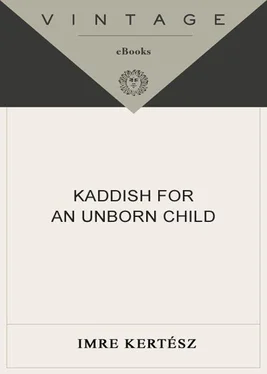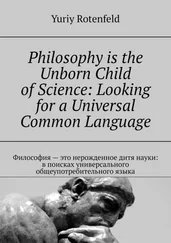frivolous , because ever since the machines of murder have been uncovered here, there and in so many other places, ever since then it has been the end, the end for a good while, of any seriousness that might be taken seriously, at least in respect of the notion of domination, any sort of domination. And just stop once and for all, I most probably said, this “There is no explanation for Auschwitz,” that Auschwitz was a product of irrational, incomprehensible forces, because there is always a rational explanation for evil, it may be that Satan himself, just like Iago, is irrational, but his creatures are very much rational beings, their every action may be deduced, in the same way as a mathematical formula may be deduced, from some interest, greed for profit, indolence, lust for power and sex, cowardice, the need to gratify some urge or other or, if nothing else, then, in the final analysis, from some form of madness, paranoia, manic depression, pyromania, sadism, erotomania, masochism, demiurgic or other form of megalomania, necrophilia and what do I know which of the multitude of perversions, perhaps all of them at once, whereas, I most probably must have said, now pay attention, what is truly irrational and genuinely inexplicable is not evil but, on the contrary, good. That is precisely why I have long since had no interest in leaders, chancellors and other titled usurpers, however much you may be able to recount about their inner worlds; no, instead of the lives of dictators, for a long time now I have been interested solely in the lives of saints, because they are what I find interesting and incomprehensible, they are what I am unable to find merely rational explanations for; and even in this respect Auschwitz, however sick a joke this may sound, Auschwitz proved a fruitful enterprise, so however much it may bore you, I will tell you a story, and then you explain it to me, if you can. As I’m sitting in front of a roomful of old hands, I shall be brief, and if I say no more than
Lager , and winter, and a hospital transport, and cattle wagons, and a single issue of cold food rations, when the journey will last for who knows how many days and the rations are doled out in tenths, and, lying on the wooden contraption that passed for my stretcher, I could not take my dog-eyes off a man, or rather skeleton, who, I have no idea why, was only ever referred to as “Teacher” and who had picked up my ration too, and then the entrainment, and of course, time after time, the roll call doesn’t tally, and a yelling and commotion and a kick, then I feel myself being snatched up and dumped in front of the next wagon, and it’s a long, long while since I saw either “Teacher” or my ration — that’s enough for you to picture the situation precisely. Likewise how I felt: first of all, I had nothing to feed my eternal tormentor, hunger, the irascibly voracious wild beast that had long since become a stranger to me, and now hope, that other wild beast, had begun to rage as well, having hitherto purred faintly, muffled maybe, but insistently, that, all appearances to the contrary, there was still a chance of staying alive. Except that with the ration gone this all at once looked extremely dubious, while on the other hand, and I clarified this cold-bloodedly to myself, my ration would precisely double “Teacher’s” chances — so much for my ration, I thought — how shall I put it? — not overjoyed but all the more soberly. Yet what should I see a few minutes later? Calling out and looking frantically all around, “Teacher” was staggering towards me, a single issue of cold rations in his hand, and when he glimpses me on the stretcher he quickly places it on my stomach; I am about to say something, and it seems that astonishment must be written all over my face because he, though already scurrying back — if they don’t find him in his place they will simply beat him to death — he says, with clearly recognizable signs of indignation on his little face, already preparing for death, “You didn’t imagine for one moment…?” So much for the story, and even if it were true that I do not wish to see my life merely as a series of arbitrary accidents succeeding the arbitrary accident of my birth, because that would indeed be a rather unworthy view of life, I have still less wish to see things as though they had all happened in order that I should stay alive, since that would, perhaps, constitute an even more unworthy view of life, although there’s no getting round the fact that “Teacher,” for example, did what he did in order that I should stay alive, to look at it purely from my viewpoint, of course, because he himself was plainly guided by something else, plainly it was primarily to preserve his own life that he did what he did, only incidentally to preserve my life too. And the question here, and find me an answer to it if you can, is why he did that. But don’t try putting it into words, for you know as well as I do that under certain circumstances, at a certain temperature, metaphorically speaking, words lose their substance, their content, their meaning, they simply deliquesce, so that in this vaporous state deeds alone, naked deeds, show any tendency to solidity, it is deeds alone that we can take in our hands, so to speak, and examine like a mute lump of mineral, like a crystal. And if we take as our starting-point (and clearly there is no other point from which we can start, is there?) that in an extreme situation such as a concentration camp, and giving particular consideration to the total breakdown of body and mind, and the resulting almost pathological atrophy of the faculty of judgment, what generally guides anyone is solely one’s own staying alive, and furthermore, if you think about it, that “Teacher” had been offered a twofold chance of staying alive, yet he
rejected that doubled chance, or to be absolutely precise, an extra chance on offer over and above his own chance, which, in point of fact, represented someone else’s chance, this suggests that precisely the — how shall I put it? — very acceptance of that second chance would also have nullified the
sole chance he still had to live and stay alive; so according to this there
is something, and I can again only ask that you don’t try putting names to it, there
exists a pure concept, untrammeled by any foreign matter, such as our body, our soul or our wild selves, a notion which lives as a uniform image in all our minds, yes, an idea whose — how shall I put this? — inviolability, safekeeping, or what you will, was for him, “Teacher,” the
sole genuine chance of staying alive, without which his chance of staying alive would have been no chance at all, simply because he did not wish, and what is more, in all likelihood, was
unable , to live without preserving this concept intact in its pure, untrammeled openness to scrutiny. Yes, and in my opinion
this is what there is no explanation for, since it is not rational as compared with the tangible rationality of an issue of food rations, which in the extreme situation called a concentration camp might serve to avoid the ultimate end, if it could serve that purpose, if that service did not run up against the resistance of an immaterial concept which sweeps even vital interests to the side, and this, in my opinion, is a most important testimony for fates in that great metabolism of what, in point of fact, constitutes life — much, so much more important than the banalities and rational acts of terror that any leader, chancellor or other titular usurper ever offered or could offer, I most probably said… But I am becoming bored with my own stories, though I don’t repudiate them and I can’t stay silent about them either, because it is my business to tell them, though I don’t know why it is my business, or to be more precise, why I feel as if it were my business, when of course I have no business in the whole wide world, since all my business here on earth has come to an end and merely one thing still remains for me, we all know what that is, and that will not be up to me, no, truly not; and now that I study my stories from the rear, so to say, from afar, wistfully, like the smoke curling upwards from my cigarette, I see a woman’s gaze fixed on me as if seeking to tap a source from within me, and in the luminance of this gaze I suddenly understand, I understand and almost see how my stories are braided into twisting threads, soft hooks woven from colored threads that I cast around the waist, breasts and throat of my (then still future, but now ex-) wife, but before that my lover, lying in my bed, her silky head resting on my shoulder, ensnare her and bind her to myself, spinning and twisting, two agile, motley circus performers who will later take their bows, deathly pale and empty-handed, before that jeering spectator, failure. But— yes—
Читать дальше












